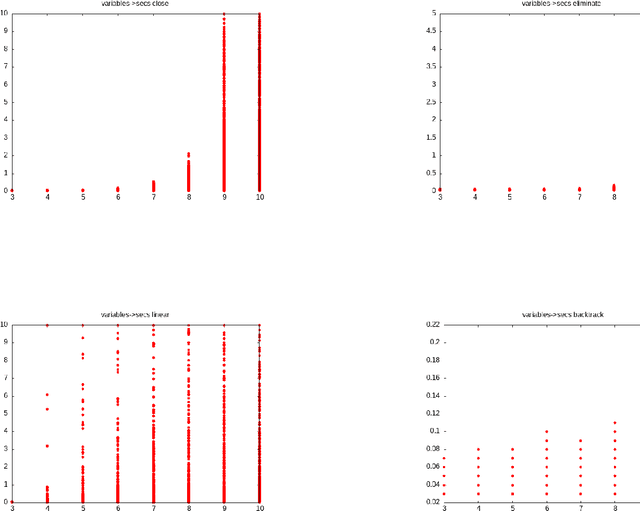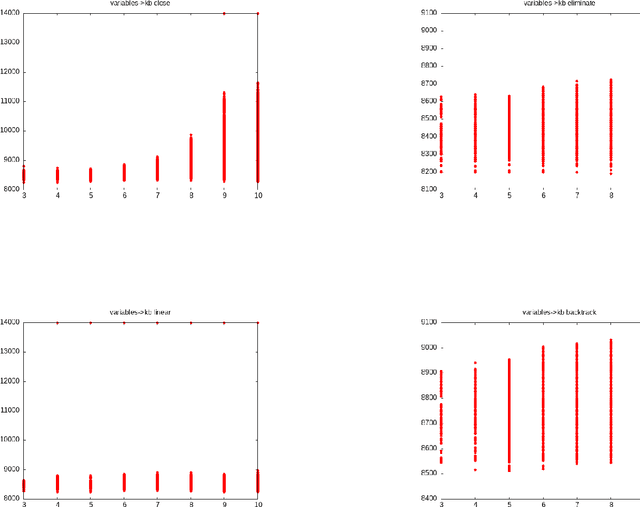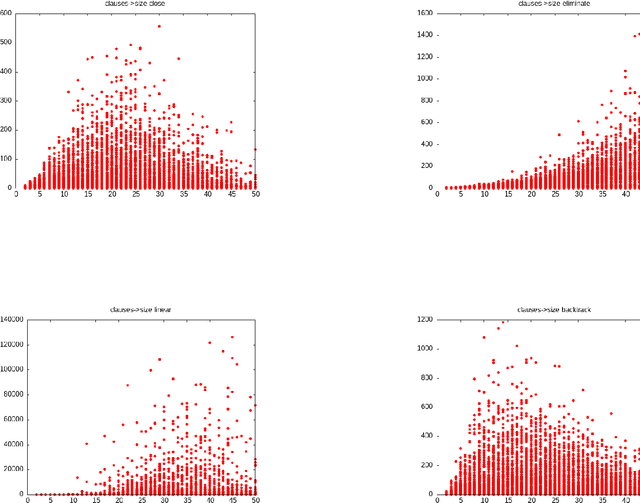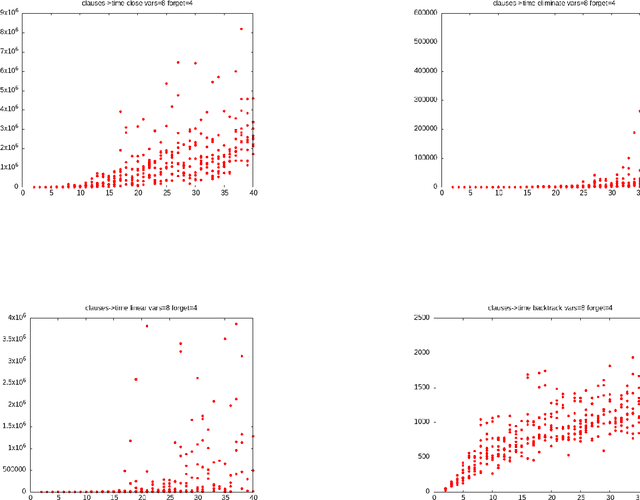Four algorithms for propositional forgetting
Paper and Code
Apr 13, 2022



Four algorithms for propositional forgetting are compared. The first performs all possible resolutions and deletes the clauses containing a variable to forget. The second forgets a variable at time by resolving and then deleting all clauses that resolve on that variable. The third outputs the result of all possible linear resolutions on the variables to forget. The fourth generates a clause from the points of contradiction during a backtracking search. The latter emerges as the winner, with the second and first having some role in specific cases. The linear resolution algorithm performs poorly in this implementation.
 Add to Chrome
Add to Chrome Add to Firefox
Add to Firefox Add to Edge
Add to Edge